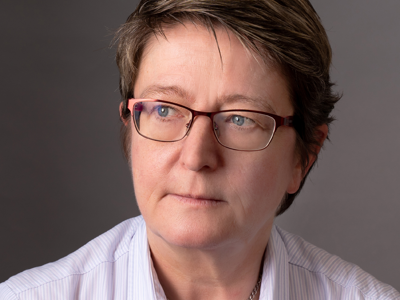
John’s Campaign and Care Rights UK lawyers make closing arguments at Welsh Administration module of Covid Inquiry
Lawyers representing John’s Campaign and Care Rights UK have told the Welsh module of the Covid 19 inquiry that if there should ever be another pandemic, core decision making should put those needing care and those providing care, including older and disabled people, right at its heart.
Posted on 15 March 2024
Making final submissions as the three-week Module 2B sitting in Wales drew to a close, counsel instructed by law firm Leigh Day said those needing care and their families represented by John’s Campaign and Care Rights UK suffered severely as a result of the pandemic and the response to the pandemic and should therefore have had a central place in decision making. But they did not, were often overlooked, or when considered, were treated as ‘dispensable’ (as recognised by the Older People’s Commissioner for Wales).
Those in need of care and support should have been a priority for core decision-makers from the very start of the pandemic, because of their exceptional vulnerability both to covid-19 and to the restrictions imposed in response.
John’s Campaign and Care Rights UK have had Core Participant Status at Module 2B which has focused on decisions by the devolved Welsh Government between March 2020 and May 2022.
Represented by Leigh Day, the charities have highlighted their concerns about the core decision making by the Welsh Government and the impact on those needing, their families and carers.
The Welsh Government was made aware of this vulnerability and the need to urgently protect those needing care, from an early stage, but chose to look the other way.
The legal team listed examples of where little or nothing was done to address the needs of those needing care and those providing care, including unpaid carers:
Discharge from hospital to care homes, a “data chasm” in social care, a serious lack of consultation with stakeholders, a failure to investigate indirect harm, conflicting and unclear guidance, isolation from the essential support of loved ones, no parity with the NHS.
John’s Campaign and Care Rights UK also made the following points on indirect harm:
- Restrictions should not be imposed unless all reasonable efforts had been made to identify the harms that would arise
- There should be a balance between the benefit in reducing Covid-19, against the indirect harm that would be caused by restrictions
- This balance should also take into account personal wishes and individual needs, given the fundamental importance of, and right to, autonomy
John’s Campaign, led by Julia Jones and Nicci Gerrard, works across the UK to support people separated from their loved ones in health and care settings.
Throughout the Covid 19 pandemic, John’s Campaign waged a legal campaign for the rights of family members to visit and be involved in the care of their loved ones in care homes. Represented by Tessa Gregory and Carolin Ott, the charity convinced the Department of Health and Social Care (DHSC) to change guidance to care homes in line with human rights laws.
Care Rights UK focuses on defending the rights of people in care. It runs a national, specialist helpline for expert advice on care issues for older people, and their relatives and friends.
It supported John’s Campaign in its legal campaign which included two applications to the High Court which were withdrawn after guidance was changed. The charity, led by Helen Wildbore, provided a national voice for people needing care who were isolated from loved ones during the pandemic because of severe visiting restrictions.
Helen Wildbore of Care Rights UK said:
“The evidence paints a bleak picture of lack of action and lack of the most basic systems to protect the rights of people in the most vulnerable of situations. Sadly, people relying on care and their families have known this all along. The loss and suffering cannot be undone. But we must now see urgent changes, in Wales and across the UK, to ensure this never happens again.”
Leigh Day human rights partner Emma Jones said:
“It seems clear to our clients, having read the evidence and heard the oral evidence, that opportunities were missed. From as early as April 2020, the Older People’s Commissioner for Wales raised concerns and, more importantly, made suggestions and requested that the Welsh Government provide an action plan for older people, those needing care and those providing care. However, our clients say the Welsh Government paid lip service and nothing more. As the Chair was forced to ask a number of the witnesses – but what did you do? A lesson to learn from this Module is that asking people for input makes no difference to lives if action is not taken.
Carolin Ott said:
“The documents available and testimony heard by the Inquiry over the past three weeks have confirmed serious concerns raised by our clients that core decision-makers too often abandoned or disregarded their duties in the Equality and Human Rights Act. For example, Equality Impact Assessments, which are intended to help decision-makers assess the impacts of their decisions on equality, were conspicuously absent. As was stated in our clients’ closing submissions: ‘while abandoning human rights and equality duties must have been the easy option, if anything those duties were even more critical in a time of crisis than otherwise’. Protected groups are at greater risk, and decision makers most in need of a framework to help them strike difficult balances in times of crisis.”




